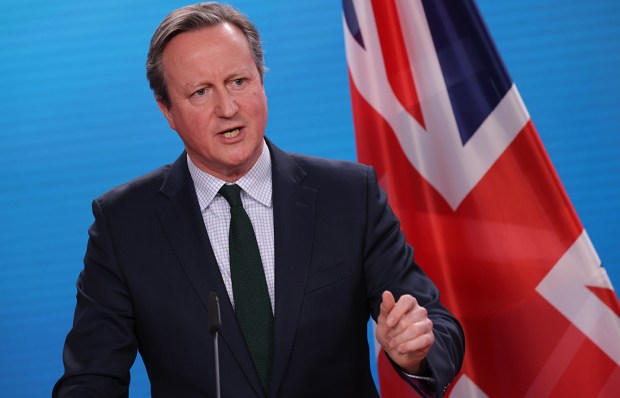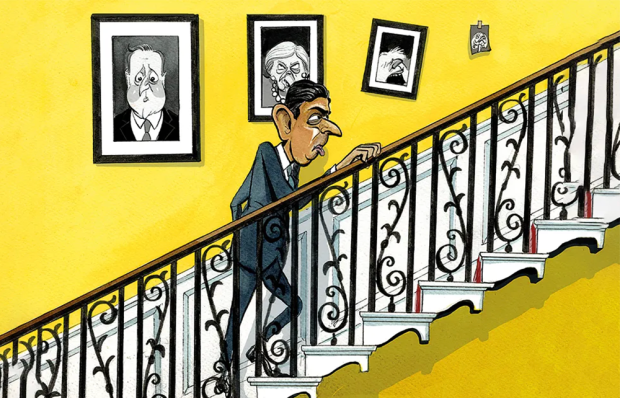I am at a bit of a loss to understand the hoo-ha about the civil servant Sue Gray. She has been offered the role of Sir Keir Starmer’s chief of staff, and many Tories suggest this implies that her investigation into those Downing Street parties may not have been wholly neutral. Where have these Tories been living for the past three decades? Of course it wasn’t wholly neutral. Almost the entire civil service – certainly in Westminster – loathes the Conservative party. Its members are, instead, hip and interminably liberal internationalist social-justice warriors. Sue Gray is probably among the moderates.
One of the most important causes for the comparative failure, so far, of Brexit, has been the virtually universal opposition to leaving the EU from the people charged with seeing it through – the civil service. In 2019 a disgruntled (and necessarily anonymous) civil servant told the Sunday Times that he estimated the proportion of Remain supporters among his colleagues at ‘well over 90 per cent’. He added that ‘the entire culture creates a thickening cloud of negativity towards Brexit… I have witnessed first-hand civil servants doing everything within their power, subtly and under the surface, to frustrate Brexit and talk it down at every opportunity.’
I bet you would be as hard-pushed to find a pro-Tory civil servant in Whitehall as you would to find one who is halfway competent. Their rancour and disaffection occasionally spill over into the public gaze – such as when the sobbing public-school woo-woos feel they are being bullied by Priti Patel, or complain that Dominic Raab was a little brusque during a meeting. My own view is that neither Priti nor Dominic bullied them anywhere near enough.
The political migration of our mandarins over the past 40 years has been remarkable to watch. Back in the 1970s the civil service was small c and occasionally large C Conservative. Much as were, of course, the judiciary, the Church of England and even the BBC: all middle-class institutions which have gone the way, politically, of the middle classes in general over the intervening decades – stampeding towards the far-left on social issues and foreign affairs, although somewhat less vibrantly red when it comes to fiscal policy and their own inflated incomes, second homes, private education etc.
You may remember a time when the C of E was called, slightingly, the Tory party at prayer and when all the popular entertainers of the day were on the right: Morecambe and Wise, the Two Ronnies, Bob Monkhouse, Jimmy Tarbuck, Cilla Black and so on. Britain now has fewer Tory-supporting light-entertainment slebs than Tory-supporting civil servants. But there is no indication that the rest of the population has travelled in the same direction. The lower-middle and working classes – the bulk of our citizens – remain socially conservative and thus averse to the fact that their lives are controlled by this relentlessly griping, hand-wringing elite, and wonder what on earth one might do to reverse the process.
As I have pointed out many, many times, the wokery inflicted on us in the past ten years has come under Conservative administrations. It is not that the Tories have failed to reverse the process – they have, usually unwittingly, advanced it by leaps and bounds. The problem is very similar to the one which affected our Brexit negotiations. While the government is possessed of a general aim, the devil is always in the detail – and almost always it is the civil service that looks after the detail. Some half-witted Tory education secretary might wish to update sex education in schools a little, but what actually happens is that, via the civil service, odious organisations such as Stonewall or Mermaids get involved. Not long after that, PSHE lessons are taking up more than an hour a week, 11-year-olds are instructed in the pleasures of bondage and sadomasochism, and hideous drag queens are telling bewildered children that there are 73 genders.
That, I think, is how it works. And I suspect it works like that across all departments. I heard a chap called Michael Barrington-Hibbert talking on Radio 4 about how firms should recruit people. Michael, who is black and was raised by a single parent in a one-bed council flat – as he helpfully informed us on several occasions – is the CEO of Barrington-Hibbert Associates, which aims to make Britain’s workforce more diverse. So big corporations that want a few woke brownie points – and they all do these days – call in his company and it advises them how they might go about their business. Very noble, you might think – until you look at some of the methods espoused.
On the programme, Barrington-Hibbert said he was in favour of rifling through a candidate’s social media profile to see what he or she had been posting. It would not do, he implied, to employ someone who had said something homophobic. I wonder what he would consider homophobic? Being broadly against gay marriages, or opposed to single-sex adoptions? If those views are considered homophobic – and I reckon Barrington-Hibbert does consider them so, because I asked him via email and he hasn’t replied – then that wipes out around 20 per cent of the British population.
And what if they don’t agree with the aims of Black Lives Matter? Should that disqualify people from getting a job? The irony, of course, is that far from creating a more diverse workforce, this policy ensures that the workforce is a monoculture. Barrington-Hibbert said he has also advised corporations to ‘work with’ suppliers that are minority-owned. Why? What about – God help us – white-owned businesses? I imagine our government has never heard of Barrington-Hibbert Associates – but there it is, changing our country under an agenda of its own.
Got something to add? Join the discussion and comment below.
Get 10 issues for just $10
Subscribe to The Spectator Australia today for the next 10 magazine issues, plus full online access, for just $10.
You might disagree with half of it, but you’ll enjoy reading all of it. Try your first month for free, then just $2 a week for the remainder of your first year.















Comments
Don't miss out
Join the conversation with other Spectator Australia readers. Subscribe to leave a comment.
SUBSCRIBEAlready a subscriber? Log in